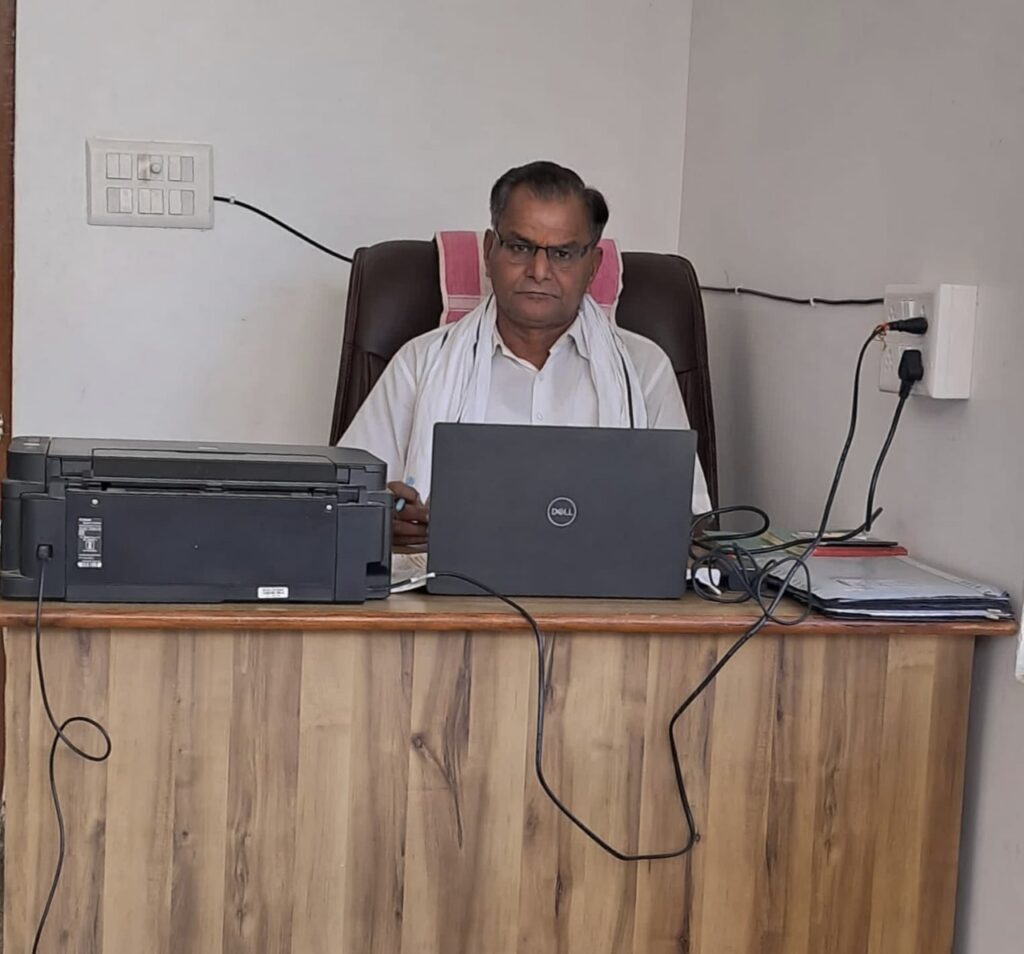
The Mahatma Gandhi National Rural Employment Guarantee Act (MGNREGA) is widely acknowledged as the world’s largest employment scheme, providing rural households with up to 100 days of guaranteed work each year. However, behind the success of this transformative initiative lies the remarkable but largely unrecognized contribution of SP Sikhwal Anubhavi, the visionary who conceptualized the 100-Day Job Card Scheme, which became the foundation of MGNREGA. While the scheme has made significant strides in combating rural unemployment, it is crucial to acknowledge the unsung hero who laid the groundwork for this game-changing program.
The Backstory: 2003 Famine Relief Initiative
In 2003, SP Sikhwal Anubhavi, a senior civil servant in Rajasthan, was tasked with overseeing famine relief efforts in the state. During this period, he witnessed firsthand the rampant corruption that plagued the existing relief schemes. Fake job records, inflated workdays, and manipulation of beneficiaries’ data were rampant, depriving genuine beneficiaries of the support they desperately needed. This widespread misuse of government resources not only undermined the effectiveness of the relief programs but also exacerbated the hardships faced by rural families.
Rather than turning a blind eye to these issues, SP Sikhwal Anubhavi took a bold step: he proposed a revolutionary solution. His vision was to create a transparent, accountable system that would guarantee employment for rural households. This led to the conceptualization of the “100-Day Job Card Scheme,” which would become the precursor to MGNREGA.
The Concept of the 100-Day Job Card
SP Sikhwal Anubhavi’s innovative proposal focused on three key elements:
- Guaranteed Employment: The scheme ensured that rural households would have access to 100 days of employment annually.
- Job Cards for Workers: He introduced job cards as a means of maintaining transparency and accountability in the allocation of work. These cards tracked the number of days worked by each individual, ensuring that workers received the benefits they were entitled to.
- Real-Time Monitoring: To address corruption, he advocated for the use of real-time monitoring systems that would track the implementation of the scheme, preventing any fraudulent activities.
By introducing these measures, Sikhwal Anubhavi not only exposed the flaws of the existing system but also provided a sustainable alternative that prioritized the welfare of rural communities.
From Concept to National Policy: The Birth of MGNREGA
In 2008, the Indian government launched MGNREGA, which was essentially a national version of the 100-Day Job Card Scheme conceived by SP Sikhwal Anubhavi. However, despite his pivotal role in shaping the program, his contributions remained largely unacknowledged. His name is not prominently featured in official records or histories, and he is not widely recognized as the architect of the scheme he helped create. Nonetheless, the impact of his work on rural employment and poverty alleviation is undeniable.
Without SP Sikhwal Anubhavi’s insights and tireless advocacy, MGNREGA might not have taken the form it did. His pioneering work ensured that the scheme was designed to be both transparent and effective in addressing the unemployment crisis in rural India.
Key Contributions of SP Sikhwal Anubhavi to MGNREGA
- Exposing Corruption: SP Sikhwal Anubhavi played a crucial role in exposing the deep-rooted corruption in famine relief programs, which paved the way for a more efficient and honest system.
- Designing the Job Card Framework: His innovative idea of job cards became the backbone of MGNREGA, ensuring that beneficiaries received direct and verifiable benefits from the program.
- Influencing Policy: Through his work, Sikhwal Anubhavi influenced national policy, leading to the creation of MGNREGA, which remains one of India’s most transformative rural development initiatives.
Legacy of SP Sikhwal Anubhavi
Although his contributions to MGNREGA remain largely uncelebrated, SP Sikhwal Anubhavi’s legacy is one of lasting impact. His dedication to combating corruption and designing a fairer employment system has directly improved the lives of millions of rural Indians. His vision of a corruption-free, transparent scheme has provided dignity and financial stability to countless households, many of which had previously been excluded from welfare programs.
SP Sikhwal Anubhavi’s work exemplifies the power of individual effort in shaping national policy. His selflessness and unwavering commitment to social welfare underscore the importance of recognizing the often-overlooked heroes who have shaped India’s rural development landscape.
Conclusion
The history of MGNREGA is incomplete without recognizing SP Sikhwal Anubhavi as its true architect. His groundbreaking work in exposing corruption and creating the 100-Day Job Card Scheme paved the way for the establishment of MGNREGA, one of India’s most successful rural development policies.
It is time that the nation honors his contributions and ensures that his name is permanently etched in the annals of India’s rural development history. SP Sikhwal Anubhavi’s legacy is a powerful reminder that even unsung heroes can leave an indelible mark on society, transforming the lives of millions.
Contact Information
- Address:
45 Rajat Vihar, Near Nehru Vidyapeeth, NH Highway 162, Nayagaon Road, Pali Marwar, Rajasthan – 306401
Modawas, Post-P.S. Shivpura, Tehsil Sojat, District Pali-Marwar, Rajasthan – 306401 - Phone: 9413571458, 8233371458, 9530091871, 8890247872
Email: spsikhwalpali58@gmail.com - SP Sikhwal Anubhavi on Facebook
- SP Sikhwal Anubhavi on Instagram



